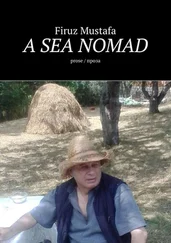Corporal Bernhardt Grover had in six months seen his budding career as an entomologist replaced by that of a tank commander. He was intrigued by the desert, which to his four companions in the Tiger 3 was just a barren wilderness of endless sand, populated by a few inhospitable Bedouin natives. To Bernhardt, the sparse vegetation and unaccustomed life that is supported in the Misratah and more recently the Damah regions held a fascination which he fought to resist, as it replaced the propaganda induced fervour with which he had departed the Fatherland. Given the opportunity, he would have abandoned the tank and its crew of indoctrinated youths and instead collected samples for future study. He had anticipated that at least he would be able to practice his Arabic, hastily taught whilst in Italy, but had underestimated both the sparseness of the population and the reluctance of the few people he encountered to talk to a German invader.
Battle-hardened by increasing British opposition, successful in several skirmishes, they had added captured supplies of Allied forces to those dwindling in the depleted half-tracks that they had previously been following. Now, having entered the range of RAF daytime reconnaissance operating out of an Egyptian base, they had adopted a tactic of maintaining radio silence between the lead panzer and the 233 car, and restricted movements to night-time. Each morning, before the rising sun had time to transform the steel armour of the panzer into an inferno, they camped under camouflage nets and rested. The previous night two panzers had succumbed to the abrading sand, which weakened the joints in their steel tracks as though they were wood. When undertaken as a planned operation it was relatively straightforward – just a matter of releasing a pin, dropping the track onto the sand and driving the machine off her old track and onto the replacement. The crew had all practiced the operation many times in ideal conditions, but when it happened as now, unexpectedly, in the dark, on only one side of the vehicle and uneven ground, it could be a difficult, sometimes dangerous, and time-consuming operation involving other vehicles and extra men. Inevitably it took more time than they would have liked. The convoy, now approaching Al Jaghbub, near the border with Egypt, was not, therefore, capable of moving until dawn, when it would be unsafe. They had therefore been unable to choose their daily hiding place with customary care.
The Germans were otherwise complacent in the knowledge that their efforts at camouflage would avoid detection from the air, because a few extra humps among those left by centuries of erosion in the desert would not be detected unless recent aerial photographs existed for comparison. Given the other failures, Bernhardt inspected the tracks of his panzer and decided he could not afford to miss the opportunity to fit replacements. The new track was unloaded and laid out in the sand ahead of the vehicle. The old one was released and joined to the new to form a straight steel road on which the panzer would move forward without drive sprockets ever disengaging.
In the crucial moment when the camouflage had been thrown clear to allow the panzer to move, they heard the whine of an aeroplane engine, and Bernhardt’s heart sank as he watched the aircraft alter course and swoop towards them before the netting could be reinstated. The convoy leader ordered all of the gunners to open fire with their anti-aircraft machine guns in a desperate attempt to prevent their presence being announced by the pilot. Hampered by the nets, they were not successful, and they watched in disappointment as the plane departed. The order was given for the convoy to move, because it was now anticipated that the British Army would soon know their position. Bernhardt’s panzer was the only one incapable of moving on and was now to complete the operation of track replacement and then try to catch up with the others.
***
The RAF observer relayed the German convoy’s position to the staff at his base at Alexandria, who in turn informed the Army, who alerted the nearest British tank patrol, who were at that moment only a few miles to the south of Bur at Tarfawi. From a captured British type 19 radio set within the panzer, with its click dials still set to the frequency on which they found it tuned, Bernhardt heard the strong, brief, coded radio signal which the Germans guessed was the acknowledgement from a nearby British patrol. Bernhardt was now even more eager to be away and urged his men into action. He chose to go under the belly to make the vital connection which would complete the loop of track as the panzer moved slowly forward. So intent were they to complete the job quickly that no one noticed the rumble, muffled by intervening dunes, of approaching tanks until it was too late. The gun loader shouted as he first sensed the cooling effect of a shadow on his bare back. The shadow was caused by the muzzle of a gun. The Sherman tank to which it was attached appeared, its menacing shadow cast by the morning sun over the scene of frantic activity. Over a dune it climbed, as the loader continued to shout his warning to his commander. His cries were cut short by machine-gun fire as he and two others died. The driver, head projecting from the panzer’s hatch, involuntarily stopped progress at track replacement, old track half off and new track still flat on the sand, when his skull was shattered by the machine gun of the Sherman. Meanwhile, the turret of the Sherman was turned, and its barrel aimed. The inevitable shell, as it exploded, lifted the panzer off both of her tracks, and she settled with wheels burying themselves in the sand. Bernhardt’s mind went blank.
***
The British, finding no prisoners or any justification to further disable the panzer, departed to the east to join their comrades in pursuit of the German convoy.
The day passed without Bernhardt regaining consciousness. As darkness fell and the heat faded from the sand, the jackals emerged from their daytime slumber and soon found the scent of the bodies of Bernhardt’s companions. They smelt him later, but made no effort to dig into his cover because, apart from one, they had by then already satiated their hunger. The last to depart was about to taste his outstretched hand as Bernhardt regained consciousness, his ears still ringing. The animal departed when the fingers began to move unexpectedly. Slowly, he recalled what had happened to put him in this situation; trapped beneath the hot steel belly. Whilst he had been unconscious grains of sand beneath him had moved to accommodate his body, such that the pressure of the smooth armoured underbody of his panzer was evenly distributed along his vertebrae. He tried to wriggle free but found that he could only move his head, in which the sound of the exploding shell still reverberated, plus the fingers of the extended left hand that had frightened the jackal. By moving his chin, he formed a pocket in the sand beneath his mouth and with his tongue, he cleared the sand that adhered to his lips and teeth. He was at least able to get air into his lungs via his throat, he realised. He exhaled in a futile and painful call for help that went unanswered. The depression by his mouth slowly filled with hot oil as it leaked from the damaged engine and trickled down his cheeks. He felt a different kind of depression as he became afraid that he would die a slow death. In a panic, he wet himself. Again, he lost consciousness.
When he next regained his senses, the earth had circled the sun and it was again approaching its zenith, turning the mass of steel above him into a furnace. Something brushed past his fingers, causing him to attempt to shout, but whatever it was, perhaps a snake or scorpion, he thought, scampered away. The oil had dispersed into the sand, but its acrid smell remained, and its liquidity taunted him. He needed to drink and knew that soon he would not even have moisture in his body for perspiration. His trousers dampened and became sticky when excrement filled the space between his buttocks and the panzer. He thought of his past and then what he would miss if he died. He wished he had collected those specimens when he had the opportunity. He cursed the Führer. He prayed. His only sense of time came from the cooling and heating of the panzer, as his watch was on his left wrist beyond vision.
Читать дальше












